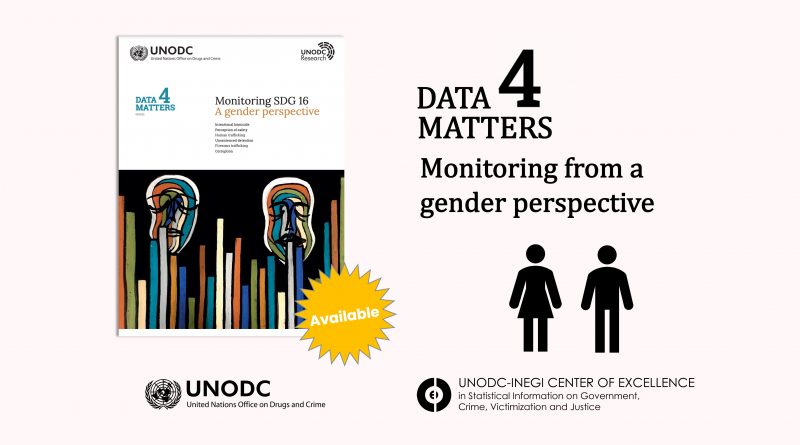Data Matters 4: Monitoring from a gender perspective
The United Nations Office on Drugs and Crime (UNODC) presented the fourth edition of the Data Matters series, and this week they published its Spanish version.
Data Matters is a series that provides easy-to-read research briefs on topics related to crime, criminal justice and drugs. This series looks out for make UNODC data accessible to policy makers and the public in a timely manner.
The three previous publications addressed issues such as: overcrowding in prisons, intentional homicides, arms trafficking, killings of women and girls by their partners or other family members, and indicators for the Sustainable Development Goal (SDG) 16.
The most recent publication highlights the gender perspective in violence and crime data in the context of the 2030 Sustainable Development Agenda. Some of the findings on this report are:
- The overwhelming majority of homicides worldwide are committed against men and boys (82%), while women and girls account for a much smaller share of all homicide victims (18%)
- For every 10 detected trafficking victims: 4 are women 2 girls. 2 men and 2 boys.
- During 2019 due the Covid-19 measurements the population in prison decrease 4.7%, in relative terms the global reduction was more pronounced for women (-10.3%) than for men (-4.2%).
- At the end of 2020, 1 in every 3 prisoners worldwide was held in detention without having been sentenced for a crime. Data suggests that the share of unsentenced detainees was slightly higher in the female prison population (36%) compared to the male prison population (30%).
- And finally, regarding corruption, cross-national studies have shown that, on average, men are more often the target of bribery requests than women when in contact with public officials.
To understand and solve challenges such as those of SDG16, disaggregated data on victims, perpetrators, and the context in which violent behavior or delinquency occur are needed. The impact of crime on men and women can only be seen in a differentiated way through the data. The Center of Excellence works with different countries in the Latin American and Caribbean region to improve the quality and availability of crime and criminal justice data to support evidence-based decision-making.
For the full document, click on the following link: /unodc/wp-content/uploads/2021/02/DataMatters_4_2022_ENG.pdf
Or check the complete DataMatters Series: /index.php/home-publications/



